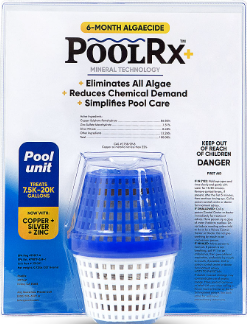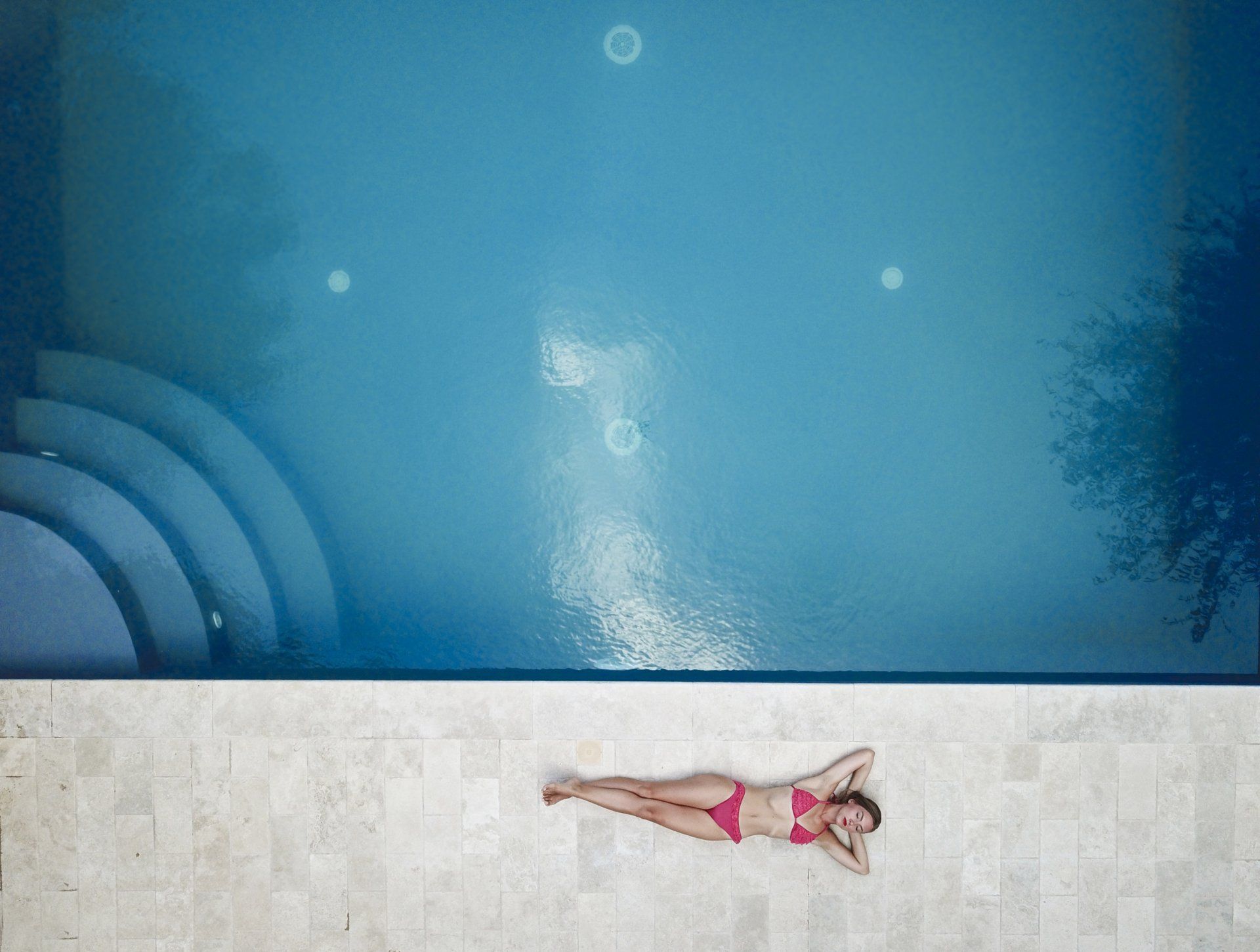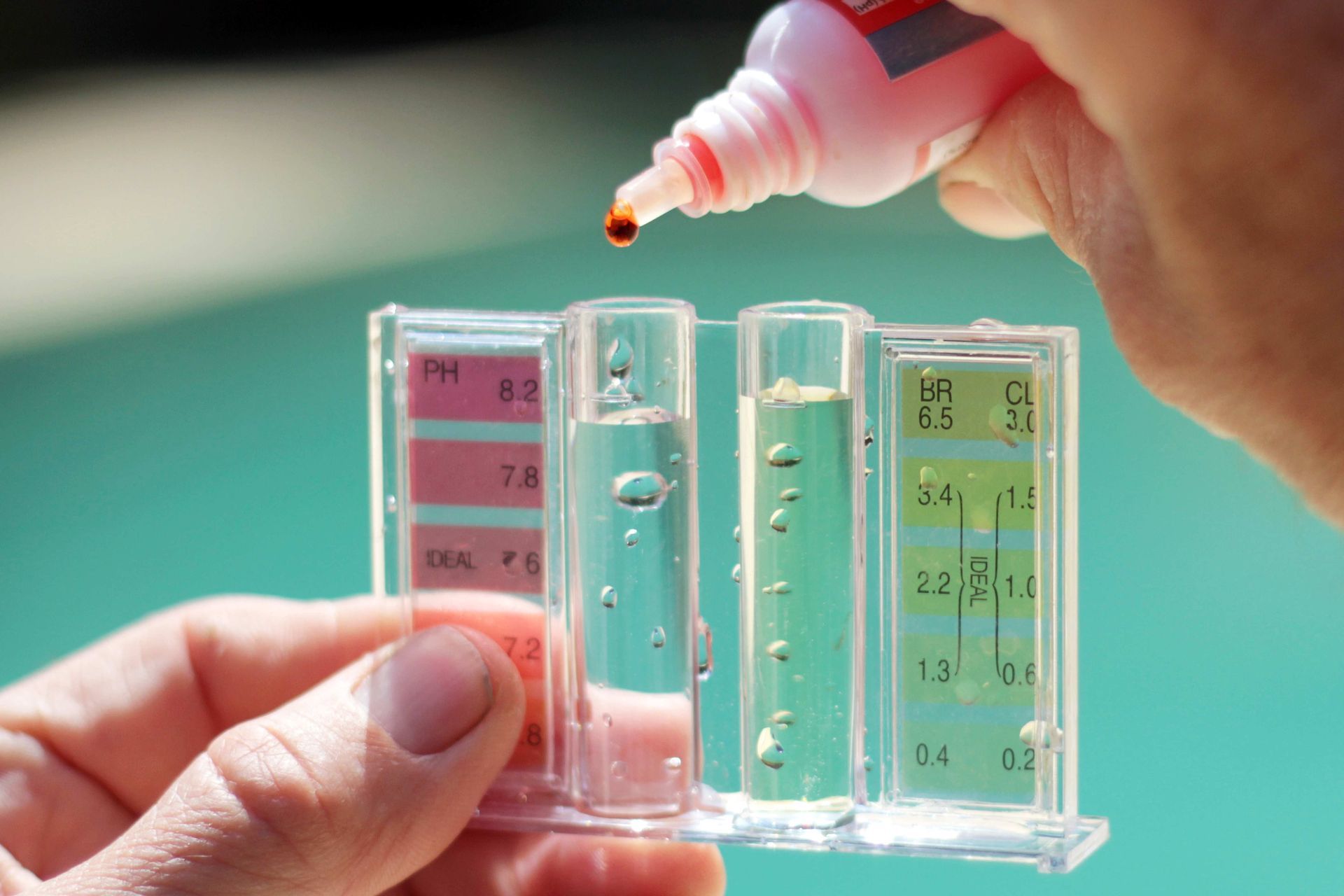Every Pool Should Have Pool Rx
Every Pool Should Have Pool Rx

Are you a busy person who's short on time? Too many tasks and never enough hours in the day? We all feel that way from time to time. But we carry on because someone has to keep things going, right? In today's world where everything around us is running at top speed, it can be difficult sometimes to keep up. And keeping your pool clean and clear of algae is something you need to do, whether or not you enjoy it. So here's a swimming pool maintenance tip - a way to cut back on the cleaning and sanitizing work necessary to maintain your pool: Pool Rx.
Why Pool Rx is Necessary?
I use Pool Rx on all of my pools that I service. Pool Rx works perfectly in tandem with your chlorine to help keep you pool clean of algae and sanitized. In a pool where you just have chlorine as the sanitizer and algae killer, the chlorine is less effective because it is pulling double duty and quickly becomes consumed and used up by the bacteria and algae that its working to fight against. Pool Rx is the super hero side kick to chlorine, it fights the algae, while chlorine fights the bacteria.
What is Pool Rx & How does Pool Rx work exactly?
Pool Rx is a mineral solution that comes in a container(I call it a grenade) that can be dropped into the skimmer basket or the pump basket. Once dropped into the skimmer or pump basket it dissolves completely into the water within 4-6 hours. The mineral solution is chelated so unlike a lot of other algaecides there is low risk of the minerals falling out of solution and creating metal staining on your pool surfaces. The grenade unit remains in the skimmer or pump basket as it has rod inside of it that helps it ionize the minerals in the water. Its this process that allows the product to be effective for up to 6 months. Pool Rx also sends a booster package that can be added to the pool to help extend the life of the rod up to an additional 6 months.
Should I use Pool Rx if I already have algae in my pool?
Absolutely!!! I use Pool Rx as one the main tactics to clear up green pools or even pools with a small amount of algae on the steps or walls.
Can I use Pool Rx to totally replace my chlorine system?
No, Pool Rx still needs Chlorine. As I mentioned they are a like a super hero duo, they work best together. However, with having Pool Rx in your system you will use less chlorine and your residual chlorine will last longer. Pool Rx also works great in salt water pools, as your salt cell will need to generate less chlorine, therefore extending the life of the cell.
Does Pool Rx work with any type of filter?
Yes, Pool Rx works with any kind of filter. One thing to call out for sand and D.E. filters when backwashed a little bit of the Pool Rx mineral exits the system in the backwash process. Its a good idea to replenish the Pool Rx with one of the booster packs if frequent backwashing is performed.
It makes sense to use a product like PoolRX when maintaining a swimming pool. Pool RX is a product I would recommend to every pool owner. If you are serious about maintaining a swimming pool, you need to be using Pool RX. It is a very safe way to keep your pool safer and cleaner, and if you're not using it, then you're not getting the most out of your money spent on those chemicals. Why would anyone turn down the chance to use this great new addition to the pool maintenance arsenal? Using Pool RX became second nature for me once I learned how efficient and effective this product is at preventing algae and keeping my customers pool water clean.
For more information about Pool RX refer to the websites below:
PoolRx - Simplifying Pool and Spa Care


